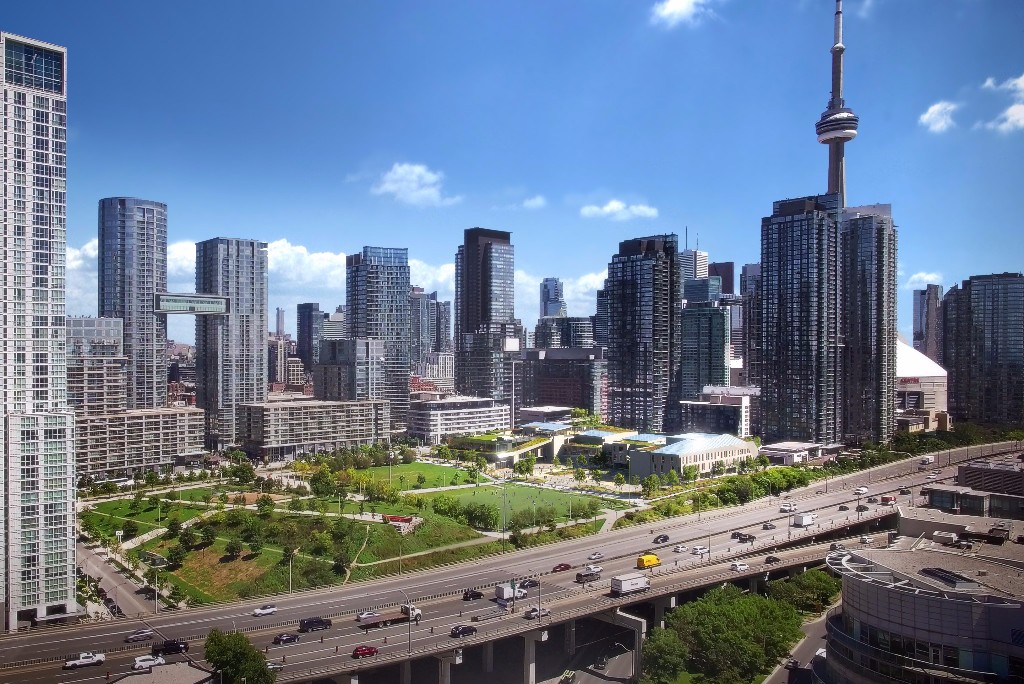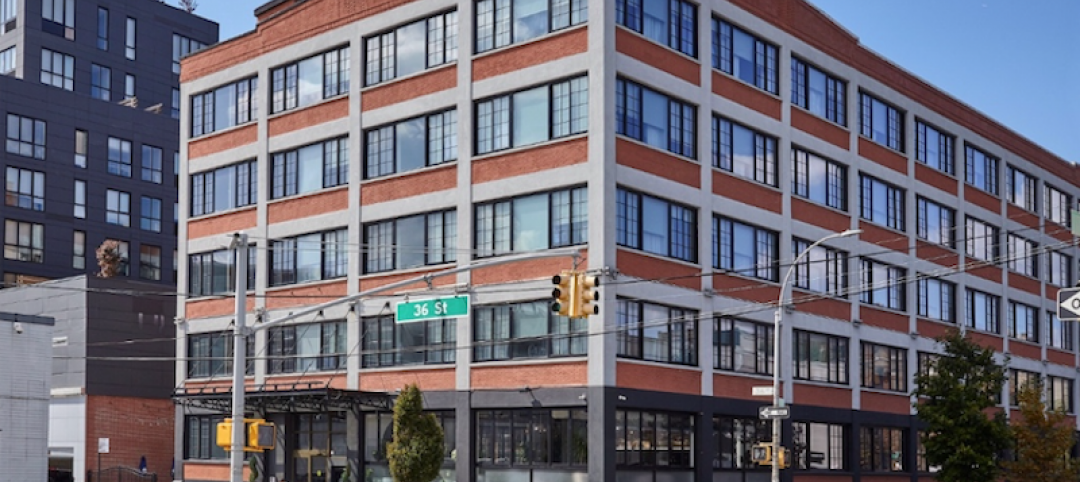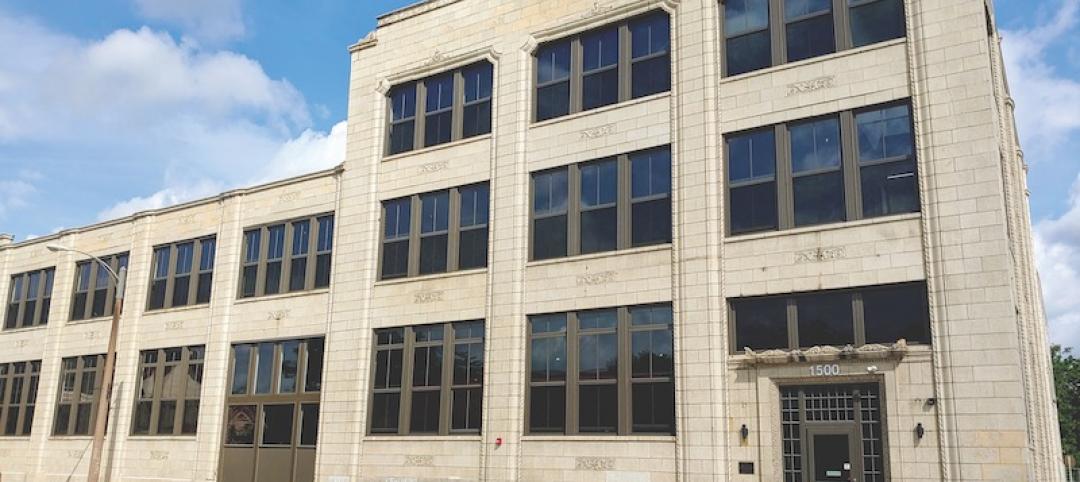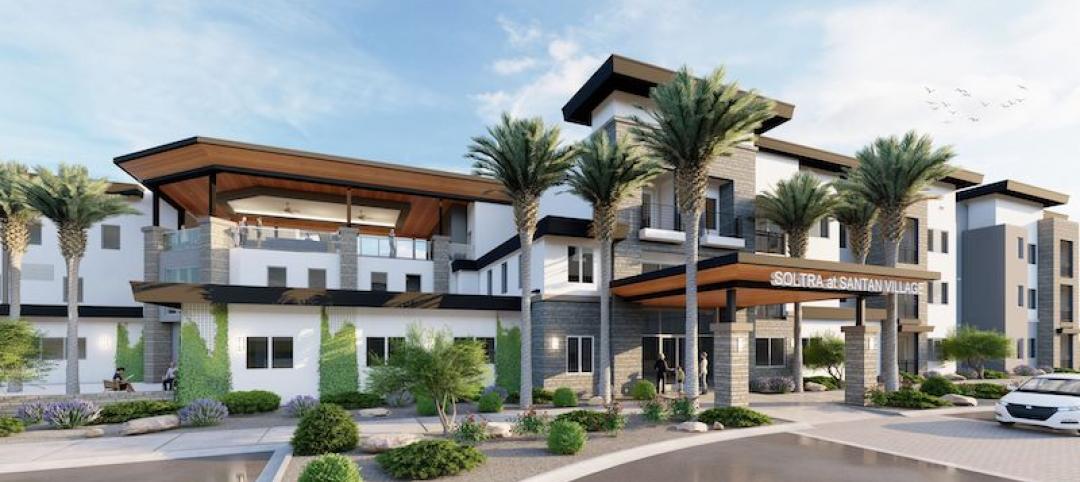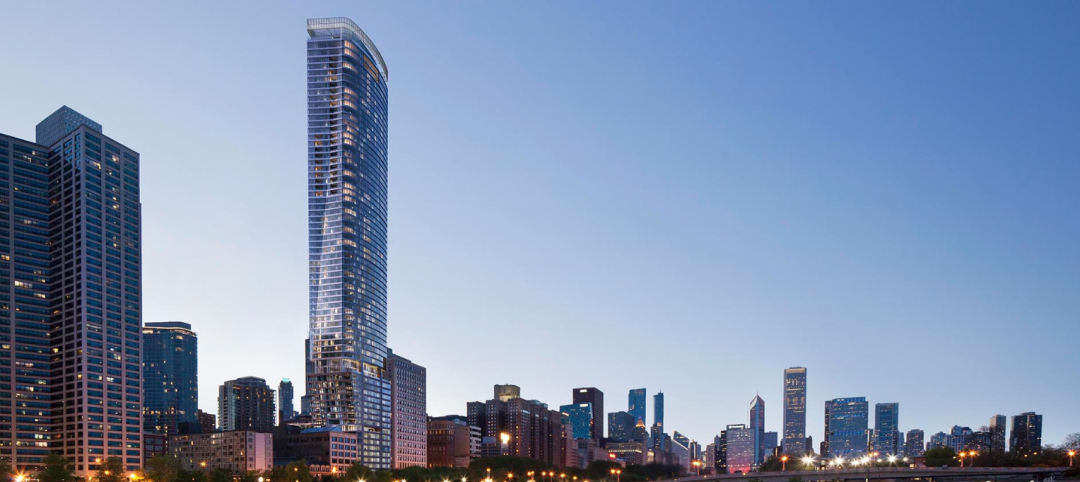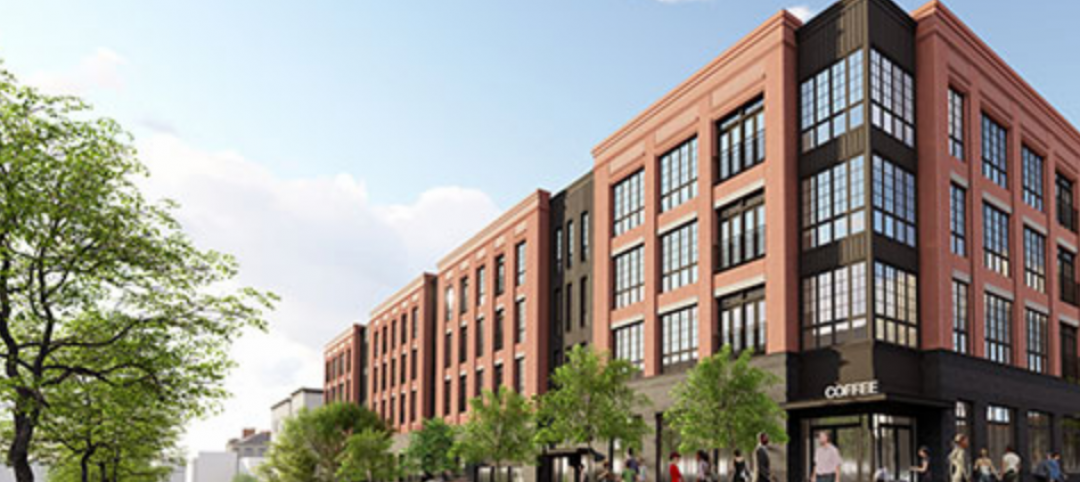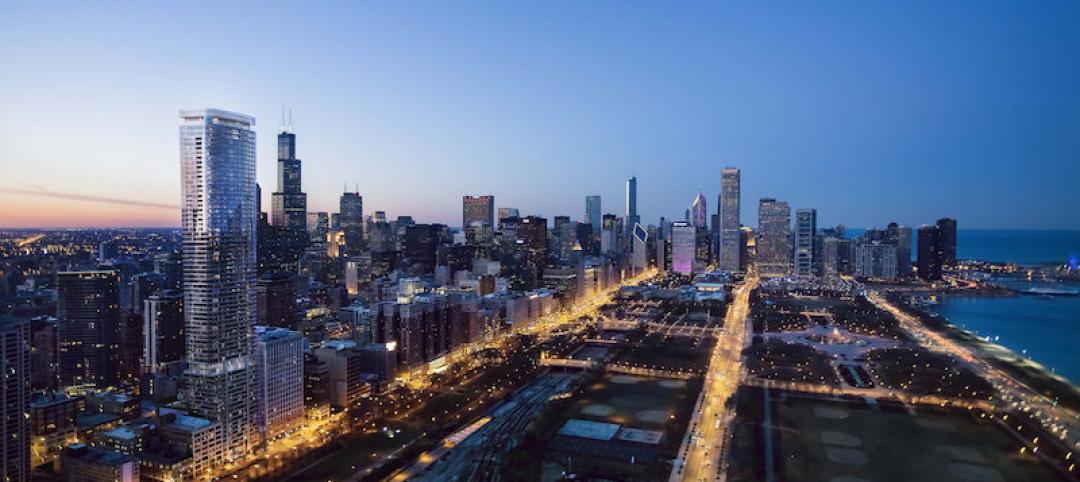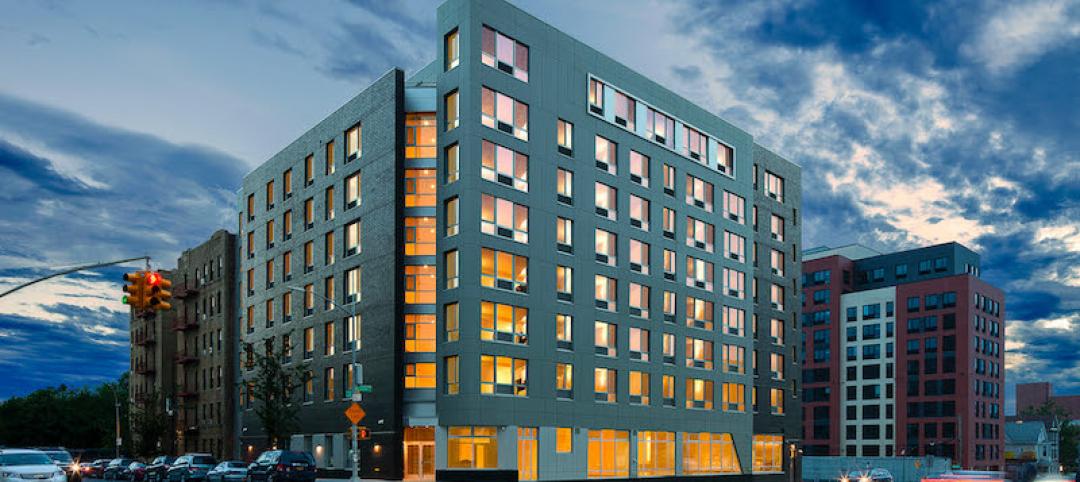Arising tower by tower in a former waterfront railway yard, CityPlace remade Toronto’s skyline with its collection of new high-rise towers, and became home to over 20,000 residents. This community of Torontonians pioneering vertical living are not just young singles and “empty nesters,” but also families.
Recognizing a vital need for a missing social and educational nexus in Toronto’s booming downtown core, the new Canoe Landing Campus by ZAS Architects will house a 158,893-sf, $65 million community recreation center, public and Catholic elementary schools, and a childcare center within one campus.
Serving an important social function, the campus architecture supports a new platform for connection. In a vertical, urban community where neighbors often experience solitary lifestyles, this interaction is vital. Conceived as a social condenser, the building program was developed through multiple community meetings attended by hundreds of residents.
From the first public meeting packed with strollers and young families, it was clear this community had very unique needs resulting from a wide demographic range, the realities of living with less square footage, and the pressures on existing public space as the population grew with each new tower constructed. Faced with the challenges presented, ZAS Architects created an original architectural form that leveraged the synergies of co-locating the schools, community center, and childcare to reduce the building footprint and maximize open space.
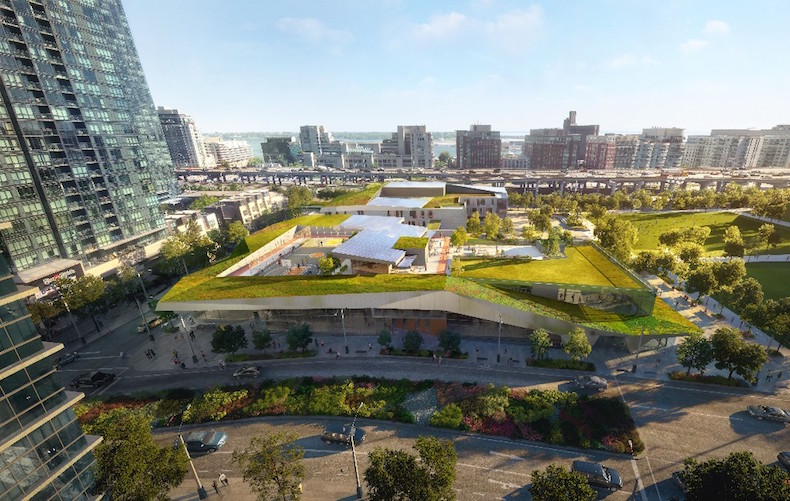
The new campus provides an opportunity for shared community spaces, from gardening plots to basketball courts on the roof, spaces for indoor and outdoor play, a community kitchen for canning parties and cooking classes, and a gracious lobby space for neighbors to meet.
Community input generated innovative spaces such as indoor play areas geared to enhancing children’s motor skills and the creation of multipurpose rooms that adapt to both active and passive uses.
The two schools share indoor play spaces, a learning commons, gymnasium, and educational areas. The outdoor park and community rooms are accessible by all. A flexible design solution features two- and three-story buildings that anchor the east side of the park. C-shaped planning maximizes solar access while sheltering play areas from the adjacent expressway.
Bisected by a pedestrian corridor, the building connects through an elevated bridge forming an east-west gateway. One side of this link contains the community centre, with gymnasium and fitness center.
Sustainability and resiliency are prominently integrated, including maximizing green roof opportunities and an introduction of photovoltaic panels to generate 10% renewable energy to meet the highest level of the City of Toronto Green Standards. Above, the building features a dynamic, “active” green roof, complete with a basketball court, jogging track, and urban gardens.
The clients on the project are the City of Toronto & Childrens Services, Toronto District School Board, and Toronto Catholic District School Board.
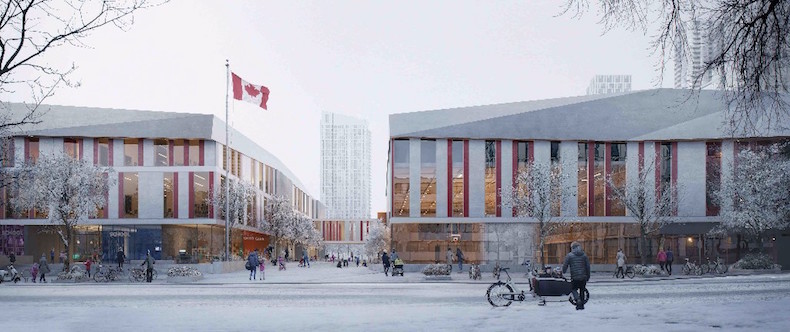
Related Stories
| Nov 6, 2019
Passive House senior high-rise uses structural thermal breaks to insulate steel penetrations
Built to International Passive House standards, the Corona Senior Residence in Queens, N.Y., prevents thermal bridging between interior and exterior steel structures by insulating canopies and rooftop supports where they penetrate the building envelope.
Multifamily Housing | Nov 5, 2019
The Collective Paper Factory is the co-living company’s first U.S. location
The building offers a stay model ranging from one night to 29 days.
Multifamily Housing | Nov 4, 2019
A historic ice cream factory now provides Milwaukee with affordable housing
Thanks to projects like this, the Lindsay Heights neighborhood is definitely on the upswing.
Multifamily Housing | Oct 31, 2019
Soltra at SanTan Village breaks ground in Arizona
Todd & Associates designed the project.
| Oct 30, 2019
James McHugh Construction breaks ground on 1000M, Michigan Avenue’s tallest tower to be
McHugh will start work on the 832-foot-tall residential 1000M tower in December 2019.
| Oct 30, 2019
The Beach Company acquires land for multifamily community in Chattanooga
River Rock project will add 163 apartments near the Tennessee River in Chattanooga’s downtown riverfront district.
Multifamily Housing | Oct 30, 2019
Techno-magnet: Multifamily development attracts top tech workers, students
Proto Kendall Square is wooing grad students and millennial STEM workers from what’s arguably ‘the most innovative square mile on the planet.’
Multifamily Housing | Oct 25, 2019
Chicago’s long-gestating luxury condo tower nears construction
Helmut Jahn designed the project.
Multifamily Housing | Oct 24, 2019
Webster Green brings affordable and supportive housing to the Bronx
Magnusson Architecture and Planning designed the building.
| Oct 22, 2019
Ben Seager, AIA, Named KTGY’s New 75+ Service-Enriched National Practice Area Leader
Ben Seager, AIA, Named KTGY’s New 75+ Service-Enriched National Practice Area Leader


